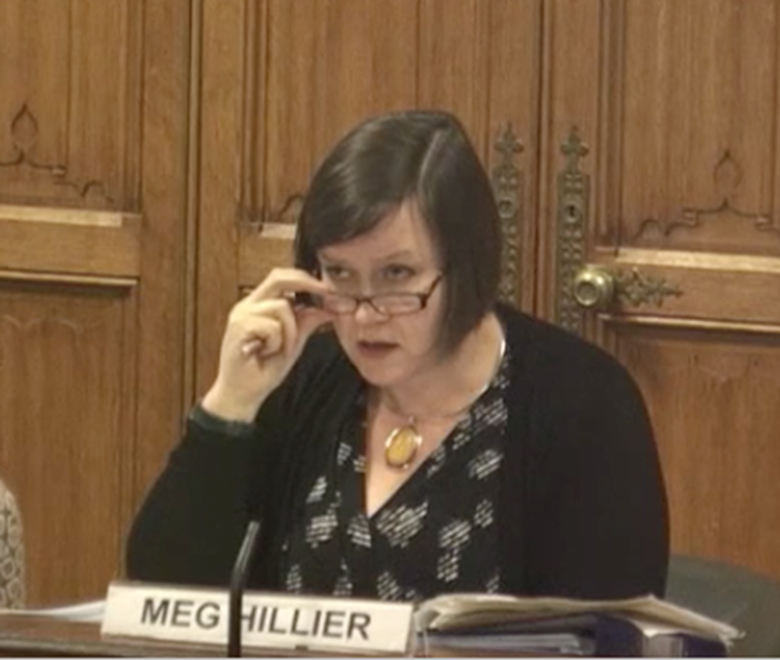MPs question future of NCS amid concerns over cost
Neil Puffett
Tuesday, March 14, 2017
The National Citizen Service (NCS) initiative "may no longer be justifiable" if it is unable to cut its costs while meeting targets for increasing the number of participants, MPs have concluded.

A report by the public accounts select committee on the flagship scheme concludes that it is time to "think radically" about what can be learned from the programme's achievements to date in order to fulfil its ambitions.
The report said that early indications from evaluations suggest that the NCS has had a real impact on those participating, improving their confidence, developing team-building and life skills, and increasing their awareness of the local community.
However, MPs said it remains to be seen whether NCS will become a "rite of passage" for all teenagers and meet its ambitious targets for increasing the number of participants or achieve its long-term societal aims.
"Without achieving both of these, at a cheaper cost per participant, NCS may no longer be justifiable and the future of the programme could be called into doubt," the report states.
"Now is the time to think radically about what can be learned from achievements to date and outline what is needed to grow NCS, bring costs under control and ensure NCS becomes a real and sustainable investment in our young people."
The NCS first launched in 2011, initially to a few thousand young people, but provision has been expanding each year since, with the government setting aside around £1.2bn to deliver NCS up to 2020.
However, NCS participation has struggled to keep pace with targets, and, in February, the Department for Culture, Media and Sport revised its aim to grow NCS participation from 360,000 in 2020/21, which had been in the Cabinet Office's single departmental plan, down to 247,000.
MPs said that despite revising downwards the target for the number of NCS participants, the new target remains extremely challenging.
Concerns were also raised about the per head cost of the initiative. MPs said the expected spend for each participant in 2016 is £1,863, compared with a cost of £1,562 per participant implied in the autumn 2015 Spending Review.
"The latest figures provided by the Department for Culture, Media and Sport in February 2017 show that the full cost per participant needs to fall to at least £1,649 in 2019 for the Trust to provide 199,000 places and stay within the revised funding amount," the report states.
The report also raises concerns about the transparency and governance of the NCS Trust, a community interest company established by government to deliver the programme, stating that it is "unclear" whether the trust "has the skills and experience necessary to oversee growth of the NCS".
Labour MP Meg Hillier, chair of the public accounts committee, said: "There are considerable long-term ambitions for National Citizen Service, a legacy of David Cameron's vision of a ‘big society'. But in our view it has already reached a critical juncture.
"The government intends to push on with plans to grow participation, citing evidence that NCS has had a positive impact on young people who have taken part.
"However, this does not in itself justify the level of public spending on the programme, nor demonstrate that NCS in its current form will deliver the proposed benefits to wider society.
"The NCS Trust has received some £475m of public money - 99 per cent of its income - since 2014/15.
"This and future commitments are significant sums yet it is not at all clear why NCS participation costs should be so much higher than those for a voluntary sector organisation such as the Scouts.
"Nor is it clear why the trust, as the recipient of this public money, should apparently be so reluctant to voluntarily disclose financial information such as the salaries of directors.
"This attitude does nothing to build public confidence in an organisation that has lacked discipline in recovering overpayments of taxpayers' money, while running a programme for which there is still no clear evaluation plan."
Michael Lynas, the chief executive of NCS Trust, stressed that the report recognises that National Citizen Service has already had a "real impact" on the confidence, life skills and community engagement of young people taking part.
"We are grateful to the committee for their recommendations. We are always seeking to strengthen NCS, reach more young people, deepen our long-term impact and deliver even greater value for money," he said.
"We share the committee's view that it is vital to measure the long-term impact of the programme. Four new independent research reports demonstrate that the programme continues to have an impact two years after graduates have completed NCS. New analysis from UCAS Strobe confirms that NCS participants are significantly more likely to get accepted into university.
"Achieving value for taxpayer's money is of central concern to NCS Trust and independent research shows between £2.20 and £4.15 of benefits are returned to society for every £1 invested.
"The vast majority of NCS funding goes to more than 200 local charities and community groups and helps them to build the local infrastructure to attract young people to NCS and deliver life-changing programmes.
"We conduct regular audits to ensure that this funding is being used in an optimal way and have remained within our budget set by government in every year. As the programme grows, we are recommissioning our network allowing us to take advantage of scale efficiencies and new ways of delivery to lower our unit cost, as the report recommends."
Yesterday CYP Now reported that one of the regional providers of the NCS has gone into liquidation, with the NCS Trust stepping in to provide the programme in its place.
Engage4Life Limited - one of 10 main providers awarded regional contracts - went into liquidation 14 months ago with debts of more than £500,000.




